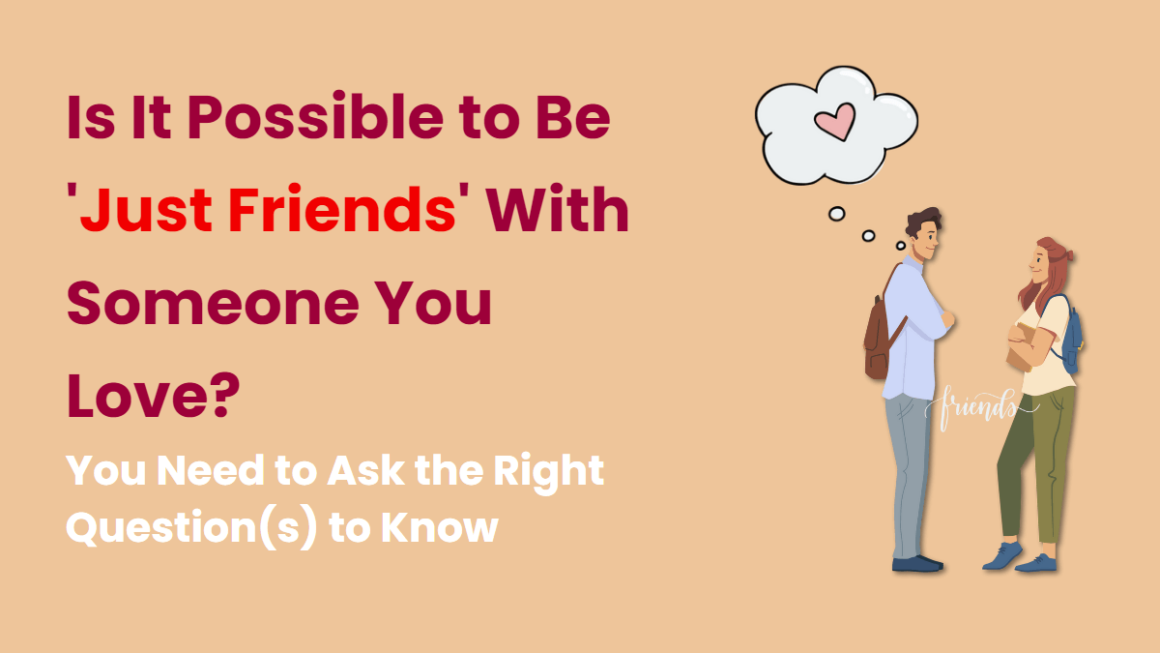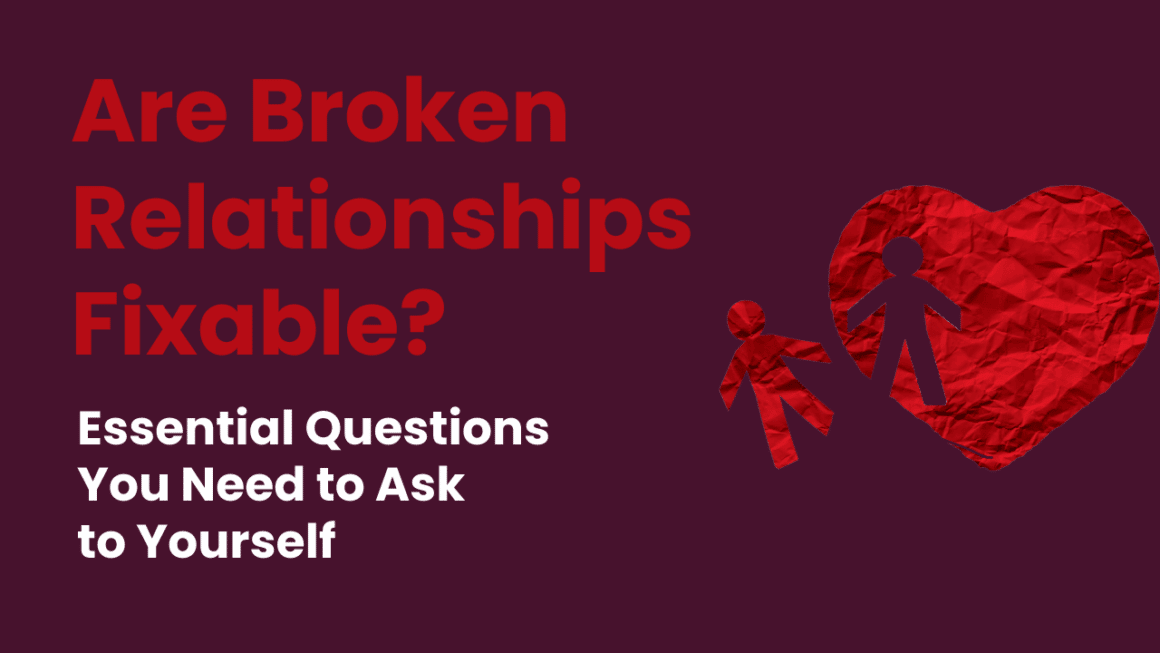Love is a very strange domain.
I can say it has different meanings for different people.
For some, it’s all about respect, trust and understanding the other person you want to spend your time with.
So for others, it’s all about chemistry, compatibility and communication.
However, it often occurred to me that we are still missing something. Or perhaps there’s always something we can learn.
Something that would help you love the person you love the most.
Love the person you love the most. This feels good, right? But despite your extensive love, you end up fighting the person you love the most.
You end up judging that person over and over again.
And in the end, you end up hating that person. Now, tell me, where is your ‘love the most’ love?
You don’t know. Well, that’s not strange in love, even though love is strange, or you can also say love is painful.
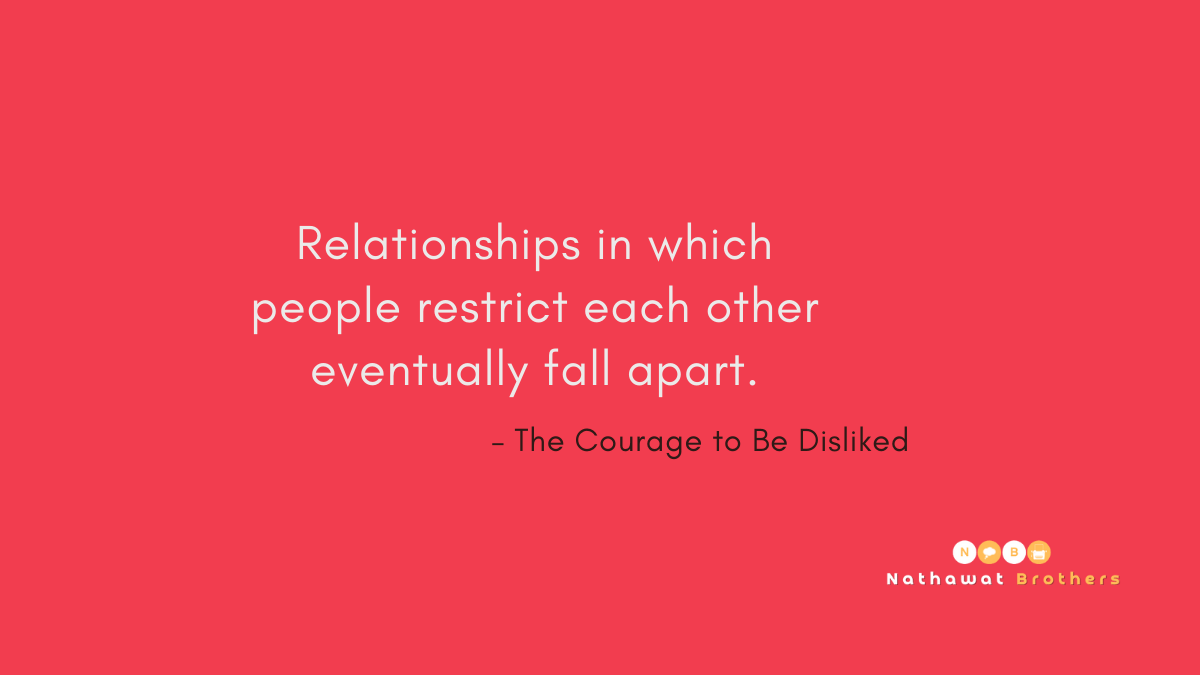
Like you, there are many.
Many have been judged and have judged others.
Many are frustrated that they end up getting nothing after giving so much.
But if love was all about giving and getting, then don’t you think we’re doing some kind of business?
Because business is the only domain where if we do something, we expect something in return. So, are you doing business?
Are you expecting something from your partner or lover because you did something for them?
If yes, then you’re not building a healthy relationship. You are bounding your relationship between conditions that would ultimately bind you with more conditions.
Because what you give to the world comes back to you.
Expecting something in a relationship isn’t a sign of unconditional love—which thrives on its own.
But conditions will break your relationship, and once it happens, you’d look for ways to fix your broken relationship.
In the book, The Courage to Be Disliked, the Philosopher says to the Youth that “relationships in which people restrict each other eventually fall apart.”
However, relationship breaks, ups and downs, are inevitable, but what’s crucial here is how you deal with them. And there’s no straight way you can say you do that, and it’ll be all right.
There’s no right and wrong.
Yet, it’s essential to have the wisdom to know when to be mature and when to be a child.
It’s essential to have the wisdom to know when to stop and listen. It’s essential to have the wisdom to know that it’s not about winning or losing. Instead, it’s about understanding how to come to a conclusion that helps both.
Even if it’s breaking the relationship.
Now the new question that arises is how to know all of it. Well, you can learn from anywhere. There’s so much content out there in the market.
You can pick a book, listen to a podcast, or visit a relationship coach.
And if you want to start by picking up a book, then you can start with Jay Shetty’s new book: 8 Rules of Love.
If you don’t know Jay Shetty already, then I’d like to say he’s the same person running the On Purpose podcast and authored an amazing book, Think Like a Monk.
But for now, let’s discuss 8 Rules of Love and what you can learn from them.
I’ll also add my understanding of those 8 Rules of Love so you can learn more in a single attempt.
If you’re ready, let’s get to our 8 Rules of Love book’s summary.
8 Rules of Love by Jay Shetty (Book Summary)
Rule 1: Learning to Love Yourself – Learn to Live in Solitude
I’m from India, and in my culture or from the region I belong to, it’s very unusual to have a girlfriend or a boyfriend.
It almost seems taboo.
We mostly go for arranged marriages, and from there, life takes a very predictable route for most people.
You have kids (it’s a must, people start to ask you 30 days after marriage whether your wife is expecting or not.) You go to the office, earn money, care for your family and relatives and just live with what you’ve got.
However, things are changing now. People somehow manage to have someone in their life before marriage, which is mostly not shared with their parents.
That’s what I have seen in my culture and circle.
But still, many remain single till they’re 24 or 25. You can count me in as well. I’m still not expecting to marry, and about having a girlfriend, I have a hectic schedule. So, that’s my story.
Not only mine but many people of my age in my country.
We spend around 30 years without someone, and according to our Vedas, it’s essential to spend your life in solitude for almost 25 years.
It’s called Brahmacharya.
And that’s what Jay Shetty’s new book, 8 Rules of Love, shares with people that you should spend time alone to understand yourself.
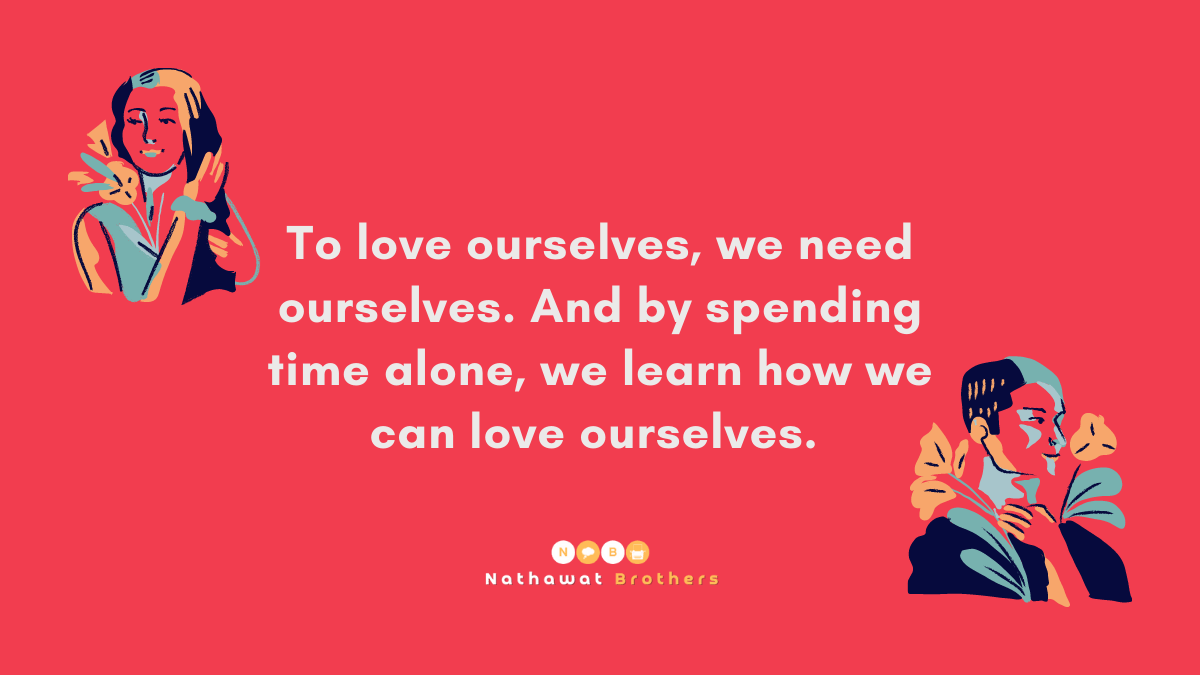
To understand that to live, we necessarily don’t need someone else. We are already complete. There’s no necessity to find someone to make us whole.
We are already whole.
To love ourselves, we need ourselves. And by spending time alone, we learn how we can love ourselves.
What makes us whole? What makes us open our eyes every day in the morning? What makes us love somebody else?
It’s not that we shouldn’t allow someone to come into our lives. Instead, when someone’s there, we don’t forget about ourselves.
How can we be faithful to someone else if we are not true to ourselves?
How can we or they love us?
They won’t, and we end up being alone, and because we don’t know how to love ourselves, we feel terrible. We make harsh decisions that put us in a rabbit hole.
We can’t stand this idea of loneliness that, out of FOMO, we end up in relationships that aren’t worthwhile.
Hence, this cycle continues till we hit rock bottom and gain some sense.
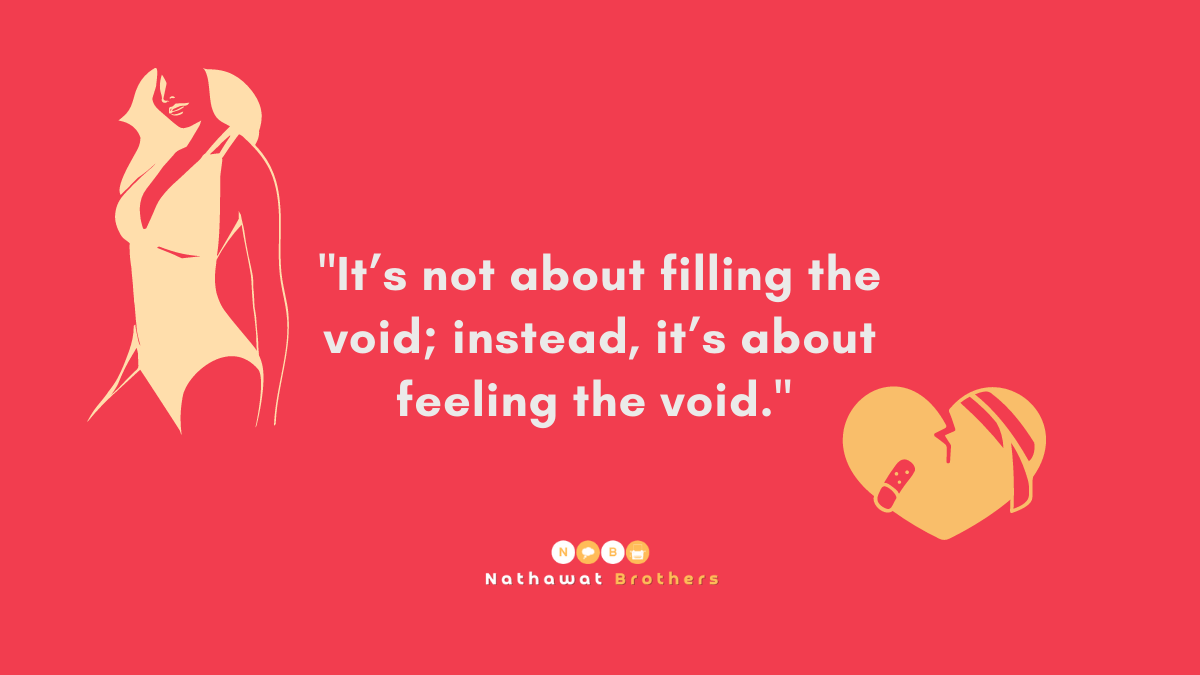
But you don’t have to hit rock bottom. Instead, you can start living in solitude. You can find perspective in life by spending more time with yourself.
And before starting a new relationship again, you know what it means to be loved, not by someone else, but you first.
Because it’s not about filling the void; instead, it’s about feeling the void.
Also, for those who think that living in solitude means you don’t have a romantic partner, then it’s the wrong way to think about being in solitude.
Because while we are single till 25 or 30, we have people around us.
We have friends and families, which means the solitude isn’t complete. Therefore, to learn what it means to be in solitude, you have to give yourself complete space.
Sometimes, some days, you should live alone without them as well.
Do things that only need you. You don’t have to shut them off like Chris McCandless did utterly. Instead, make more space for yourself. So, when they enter it, they don’t want to leave it.
You create space so people can also live there. People can also find what it means to be loved.
But if you try to make a place only for yourself, then it’s not a place to live for anyone. A house with only walls and no people isn’t a house, it’s a cage.
Hence, spend time in solitude to learn how to love yourself and others as well.
That’s what living in solitude means and what loving yourself means.
My Take On Living in Solitude
If you think that solitude is only necessary for the first 30 or 25 years, then it’s not the correct way to think.
Apart from Brahmacharya, there are other stages of life,
- Grihastha
- Vanaprastha
- Sannyasa
And these stages come with different sets of situations and challenges that again and again make us feel lonely. For example, kids leave home for college or a career. Losing someone suddenly out of disease or old age.
And there are countless situations, and if we don’t know how to live in solitude in these stages, then life can become an uphill battle.
Hence, live in solitude whenever you get the chance to live it. So no matter what, you never forget how to love yourself.
Knowing how to love yourself is the literal idea of love. Or being in love.
Rule 2: Don’t Ignore Your Karma – the Importance of Our Decisions or Choices
When people hear or talk about Karma, all they think of is that if you did something good to someone, good will happen to you.
If you do something wrong, then wrong will happen to you.
When looking through the spiritual side of Karma, it’s a great way to look at it. However, if we take a stand on the philosophical end, there’s more to consider.
Karma, as in Sanskrit, is Karm (kuhr·mm) which means deed or doings.
When we do something, it’s always followed by a result or consequences. For example, you prepare for a project. The amount of time you spend or invest in it will determine its outcome.
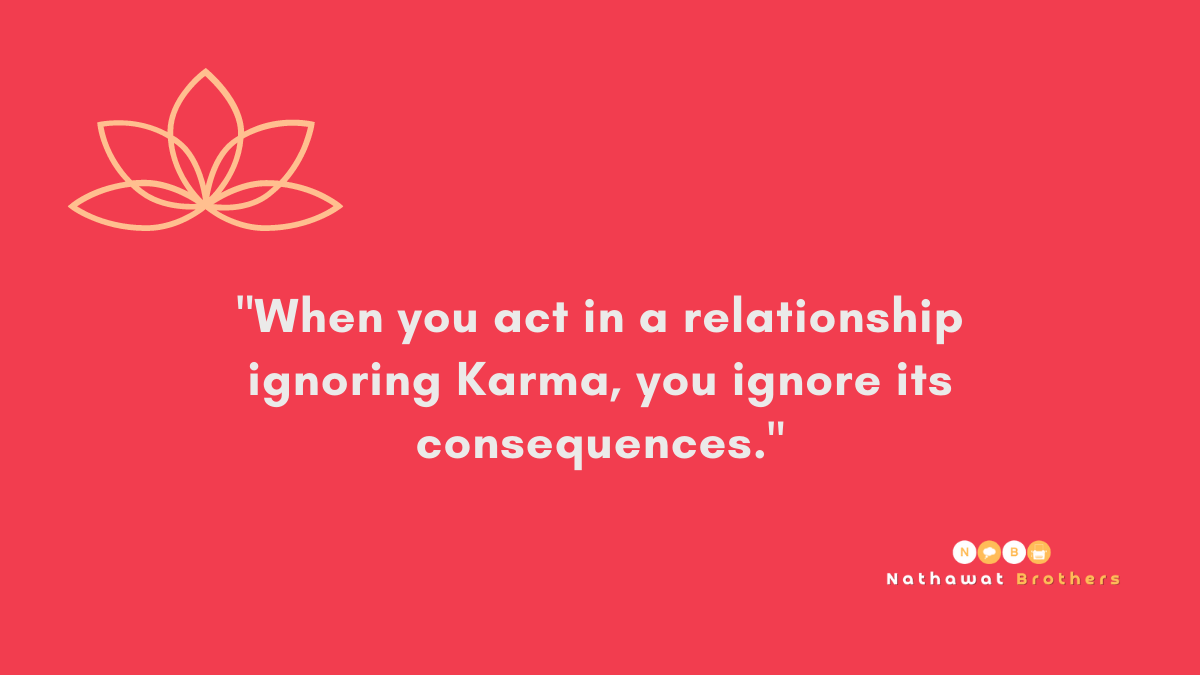
It’s not necessary that the more you prepare will help you secure a particular situation.
But it will help you secure the success rate of delivering the presentation. If you don’t prepare, you’ll most likely perform poorly unless you’re born with the talent to give presentations.
The rule of love sees Karma in the same way.
When you act in a relationship ignoring Karma, you ignore its consequences.
It’s not that if you lie to your partner, they will also lie to you in return. Instead, when you lie, you’ll try to hide it. And hiding a lie is impossible. One way or another, your partner will know about it.
When they know about it, it will create situations where you both argue and fight, which will affect the relationship.
That’s how Karma plays its role in a relationship.
Another interesting point of view shared about Karma in this Rules of Love book is that the kind of energy or mindset you use to attract people will attract people with the same sort of energy or mindset.
We fall for certain types of people, and each type determines what kind of relationship we end up with.
Rule 3: Define What Love Means to You – What’s Your Definition of Love for Yourself
“I love you.”
The three words you just read above hold great significance, generally speaking.
But, for different people, they have different meanings.
If, for some, they can impact one’s life immensely, then at the same time, for some, they are just words to manipulate other people and gain something.
I love you, when not requite, can turn into “I hate myself” or “what’s wrong with me?”
So what does love mean to you? How does it feel when you’re in love with someone? Most importantly, how do you think of yourself?
This is what this book by Jay Shetty on love tackles in this rule of love.
It’s not that you get what you give but rather what you want to.
Your love should have a clear understanding.
Rule 4: Your Partner Is Your Guru – Learn and Teach to Love
People can learn from each other. Well, we do learn from others.
Without people, we have no meaning, perhaps there would be no need, but as there are people, we learn from them in general.
Learn, teach and love.
Learning, teaching, and loving go hand in hand. If there’s no learning in a relationship, there will be no understanding; when you don’t understand, it’s harder to love someone.
That’s how it goes.
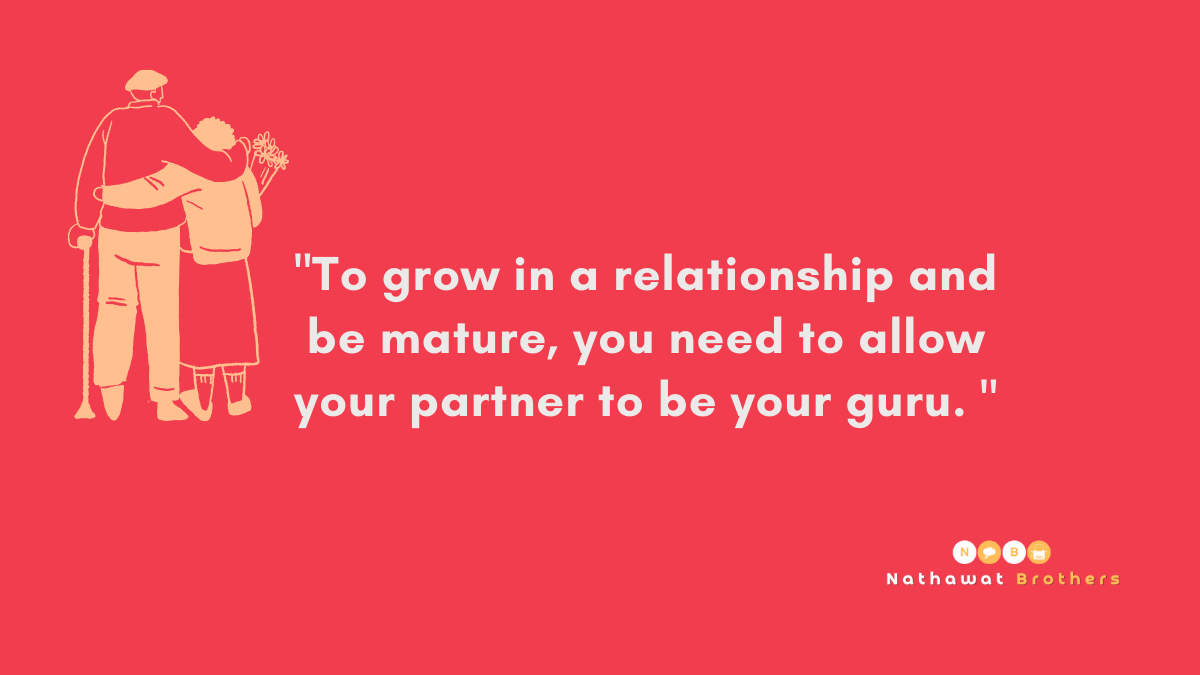
In life, we come across different teachers. First, our parents, then part-time parents in the school, then bosses and colleagues in the office.
However, the teacher can truly help us learn more about ourselves. The teacher who can push us towards our dreams and goals is the one we choose as our partner or companion in life.
The better half, or you can say, soul mate.
To grow in a relationship and be mature, you need to allow your partner to be your guru.
You must let them guide you, help you, and care for you whenever needed.
That’s how you’ll learn to love and be loved in a genuine, longer-lasting relationship.
And that’s what this rule of love explains in the new book by Jay Shetty on love.
My Take on Letting Your Partner Be Your Guru
It’s good when you allow your partner to help you, guide you and take care of you.
However, what’s better is that you switch places from time to time and let your partner be your student as well.
Why?
Because, after all, in a relationship, it’s all about being a companion and being a comrade — who learns from each other.
Not specifically for the other person. Instead of improving themselves. When you improve yourself, it will have an extensive impact on others, too. Hence, more love no matter what kind of situation you’re facing.
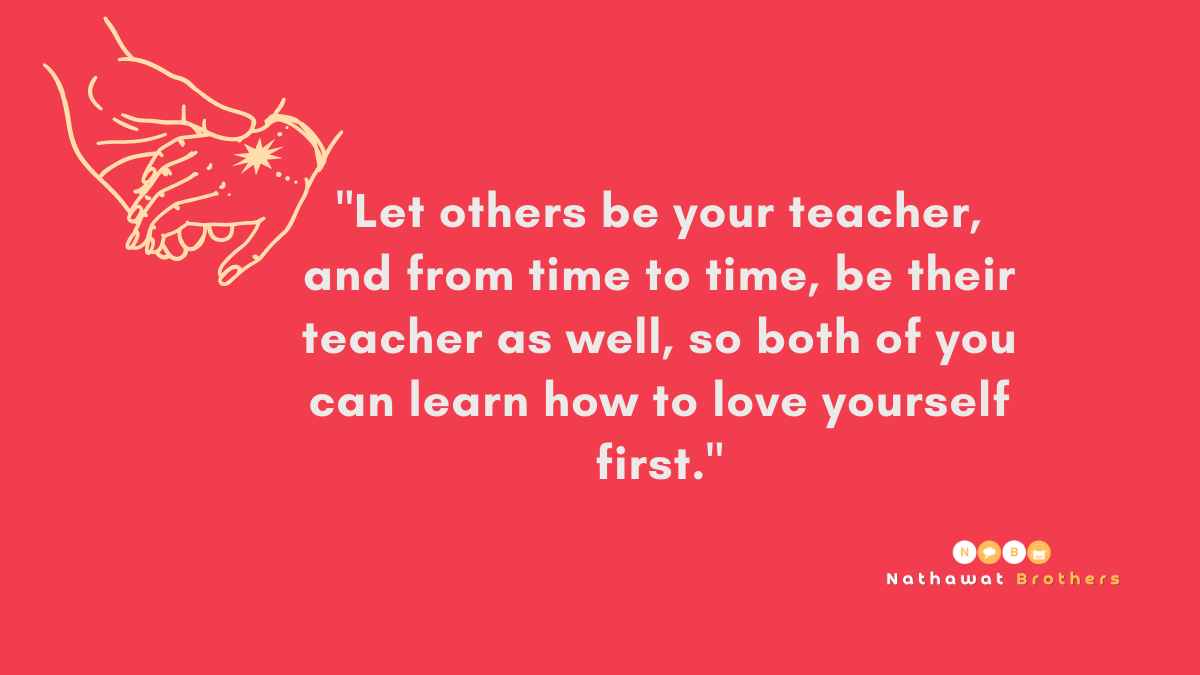
And it’s not like that only you need teaching. Only you are the one with the flaws. Your partner is also in the same place where you are.
Both of you hold much space that can be filled with wisdom.
The point is, let others be your teacher, and from time to time, be their teacher as well, so both of you can learn how to love yourself first.
Because the point is to love yourself first. Only then you’ll be able to love the other person.
You May Also Like
Rule 5: Purpose Comes First
If you don’t know where you’re going, why would someone join you?
Purpose in life is crucial, and for love, it’s necessary. It’s the anchor that holds your boat when tides are heavy.
Because of your purpose, you can dream and give yourself a reason to love yourself.
And because of those dreams, you can make someone part of your world.
People love to dream; if you have none, there’s no sense in being your companion.
But if you show people that you have a dream, and from that dream, they can dream and build their own world as well; then it’s a thing of affection.
You got to have a purpose to make people fall for you.
More specifically, yourself.
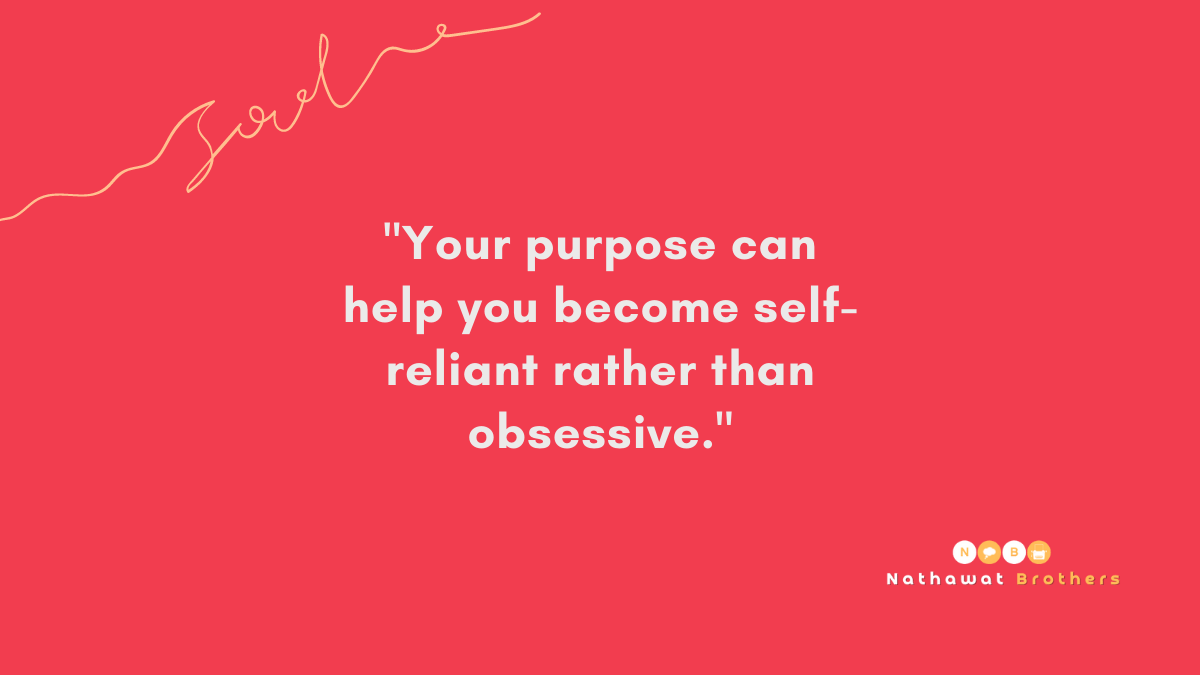
Also, because of purpose, you have a life for yourself. You don’t seek the company of the other person all the time.
Your purpose lets you live in solitude. Furthermore, you won’t find yourself in a situation where you continuously check what your partner is doing, where they are, how they are and so on.
Caring is good, but too much caring is an obsession.
And your purpose can help you become self-reliant rather than obsessive.
My Take On Purpose Comes First
By purpose, Jay is not explicitly talking about something revolutionary. Yes, it could be, but it’s not necessary.
By purpose, he meant you have an honest living.
You have a job, you have goals, and you have a routine you can follow.
Overall, you have a life for yourself.
So, you can focus on yourself other than being concerned about your partner all the time.
That’s why one needs a purpose so you know what makes you alive in this world. So you can be good on your own.
Rule 6: Win or Lose Together – Fight to Resolve, Not to Conquer
People think that partners who don’t fight are the perfect couples.
People think fighting is a bad thing.
But that’s rarely true. Or, if put simply, love without fighting isn’t possible.
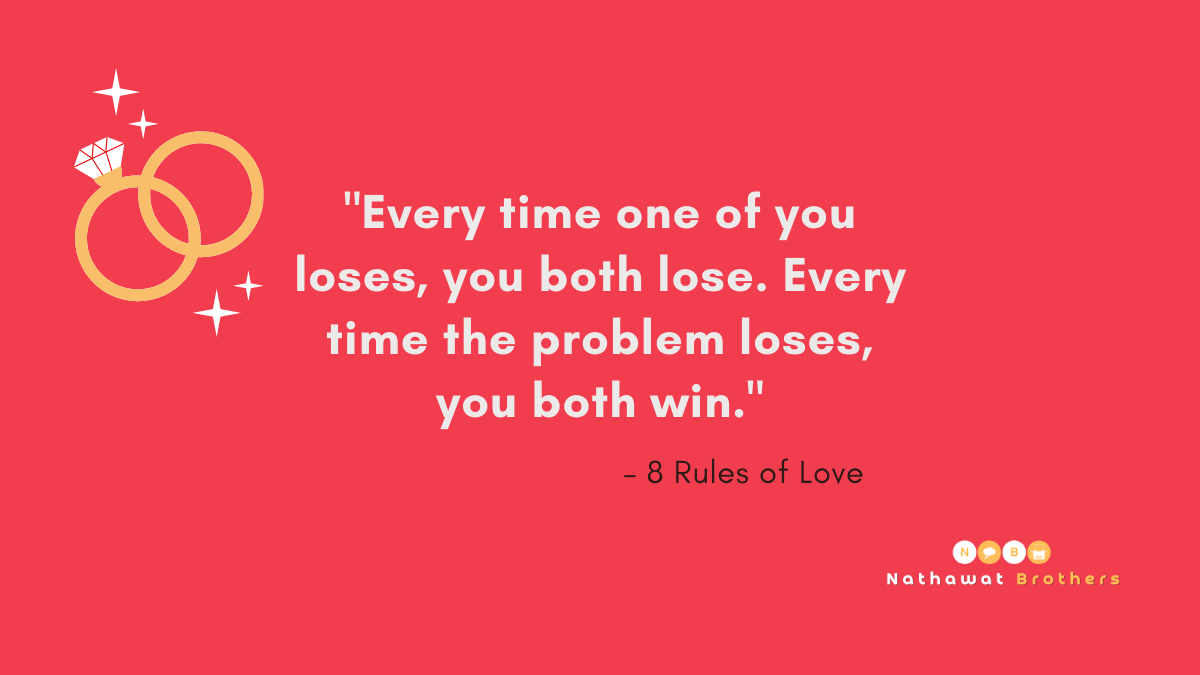
However, it doesn’t mean you just start throwing all your emotional baggage and anger on your partner to be right in the situation.
When someone wants to be right, it means they want to win.
And as the book mentions, “Every time one of you loses, you both lose. Every time the problem loses, you both win.”
Well, that’s how one should fight, not only in a loving relationship but in almost everyone.
Most of the time, when we fight, our ego comes in between. Both parties want to satisfy their feelings of superiority.
When that happens, nothing good comes out of it.
But fighting is necessary, so how should one do it?
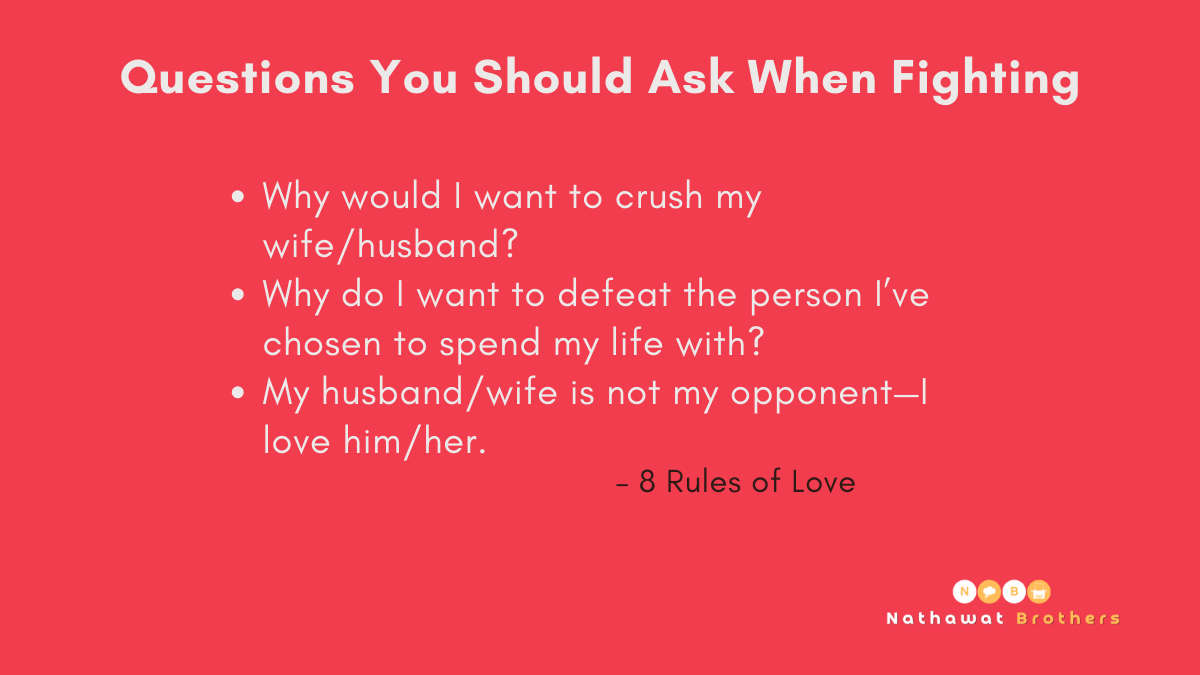
Well, when our anger and emotions are heavy on us in a situation, it’s hard to remember any guidance.
But, in those moments, there’s never a moment that doesn’t tell us that fighting to win won’t help.
There are tiny moments, or you can say the inner voice tells us very softly that this is not the right way. Now, it’s up to us whether we listen to that voice or let our ego take the lead.
But, if you manage to listen to that voice, remember the following points to fight or have arguments that will help both of you win.
- Why would I want to crush my wife/husband?
- Why do I want to defeat the person I’ve chosen to spend my life with?
- My husband/wife is not my opponent—I love him/her.
Once you’ve asked those questions and know your answers, approach your partner from a place where you see both of you as one and look for a way that would bind you instead of breaking.
Rule 7: You Don’t Break in a Breakup – See the Positive Side
The ending of something is the definition of completeness.
Every alley, every book and every connection has an ending. If they don’t end, they will become boring. Something is tiring that nobody would like to continue.
But in love, the ending is brutal. In love, you never get bored. You never feel it needs an end.
Yet still, we go through that phase—some naturally, and some due to their nature.
Abusing, cheating, controlling, doubting and apathy are one of the common reasons why relationships end.
But it’s not like you cannot fix a broken relationship even after going through rough phases. Sometimes scars make you phenomenal, just like the kintsugi art, in which ceramic pottery has beautiful golden patches to hold the piece together.
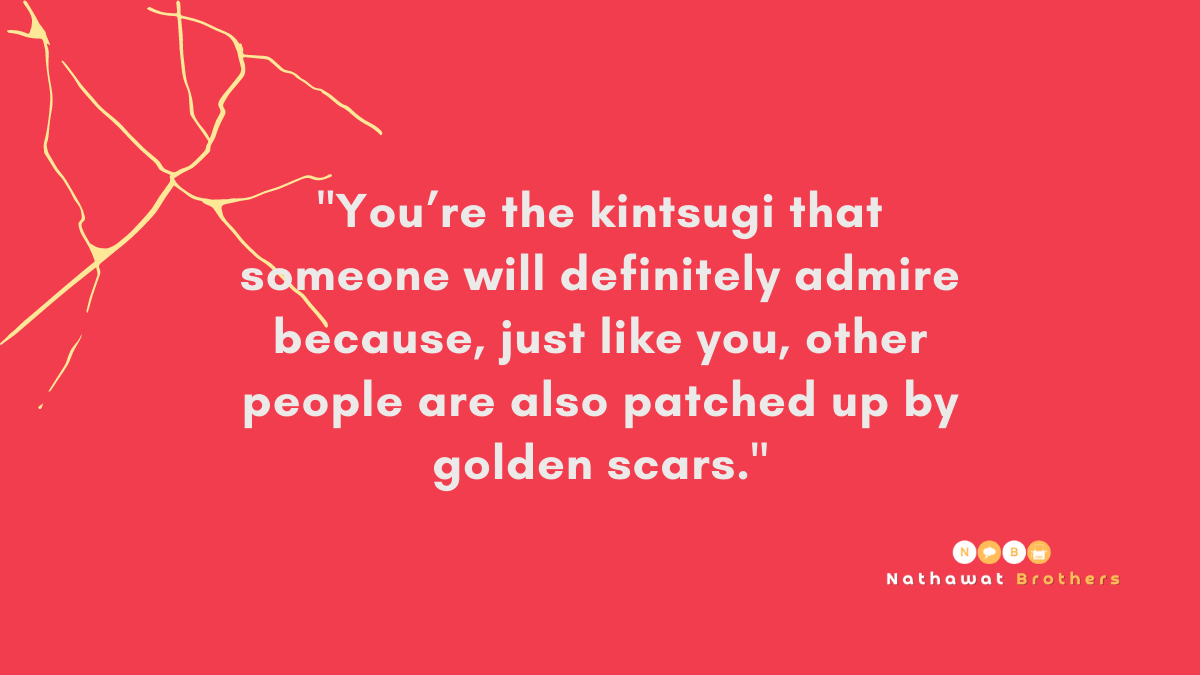
However, it’s not necessary to stay in a relationship that’s breaking you over and over.
Sometimes you need to leave because you have to love yourself as well because that’s the point of being in a relationship where you find yourself better than yesterday.
But you never break up in a breakup. Although that person has left you, it doesn’t mean it’s the end of everything. Your purpose, your friends, your family, and most importantly, you are still there, to whom people can fall in love again.
You’re the kintsugi that someone will definitely admire because, just like you, other people are also patched up by golden scars.
My Take on You Don’t Break in a Breakup
Although Jay Shetty’s new book, 8 Rules of Love, suggests that you don’t break up in a breakup, I believe you do.
We go through emotions that make us find our days unbearable. We feel trapped, dislike things, and want to hide from the world.
However, the point isn’t that we are in a shithole; instead, we can grow. We can heal ourselves because, after all, the point is to love ourselves. By going through rough phases of our lives, we understand ourselves in the most fantastic way.
We find the perfectly imperfect person just because we went through perfect imperfect moments in our lives that were a necessity of life.
Hence, you do break up in a breakup, but what matters is that you can always grow, heal, and transform into a better person.
Rule 8: Love and Love Again – Be the Best Version for Yourself and People
When you finally learn how to love yourself, it becomes easier to heal and grow. And once you learn to love yourself, it becomes easier to love other people.
Then, you don’t care whether people love you or not. Then, what matters is that you’re loving yourself and being there for people who need you the most.
Simply put, when you know what makes you alive, you don’t crave love from outside. You know, whatever you need, it’s already there inside you. Everything else is just an add-on that simplifies the process for you to love yourself immensely.
When you’re at your best, it gets easier to bring that best out into the world. Not necessarily something world-changing; however world-expanding.
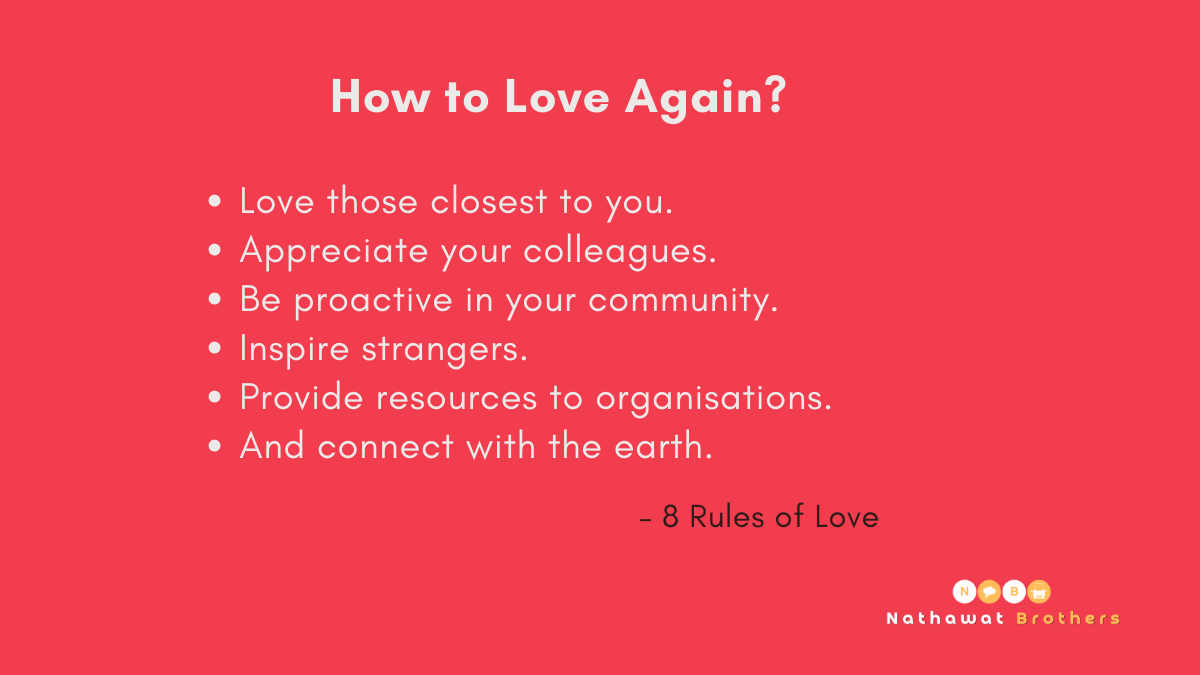
The book suggests instead of expecting love; you can find ways of expressing love.
And to do that, you can try the following ways that are suggested in the book 8 Rules of Love:
- Love those closest to you.
- Appreciate your colleagues.
- Be proactive in your community.
- Inspire strangers.
- Provide resources to organisations.
- And connect with the earth.
To go deep on to these, you need to get the book by Jay Shetty because that’s the best way to understand better.
And that’s it; that is the 8 Rules of Love book summary.
You’ll find extensive explanations of the rules I’ve simply feathered here when you read it. However, if you’re in a rush, these can also impact your life.
Thank you for giving your time, and before you go, I’d like to request you to subscribe to our free newsletter to get updates on new articles we publish. You can also support us by buying us a coffee. Use the following link or the code on the sidebar.

We are also active on Threads, Facebook, Twitter and Instagram.
That’s it,
Nathawat Brothers
Putting thoughts for everyone.
